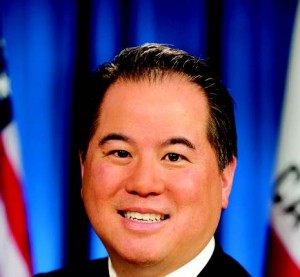 Earlier this month in Oakland, an obscure organization met to decide if California’s community and two-year colleges meet education standards. The process sounds simple, but the Accrediting Commission on Community and Junior Colleges meets behind closed doors and routinely throws students under the bus through arbitrary enforcement.
Earlier this month in Oakland, an obscure organization met to decide if California’s community and two-year colleges meet education standards. The process sounds simple, but the Accrediting Commission on Community and Junior Colleges meets behind closed doors and routinely throws students under the bus through arbitrary enforcement.
Ask any student at City College of San Francisco who went to class for the last two years in fear that the commission would shut down their school, or those students whose education recently came to a crashing halt when Heald College campuses closed in San Francisco, Hayward, Milpitas, and Concord.
The tale of these two colleges shows that education cannot be the great equalizer in our society if different rules apply to different schools. Reforms recently passed by the State Assembly this month in my AB 1397 will protect students by ensuring a fair, objective, and transparent accreditation process.
Accreditation is a stamp of approval demonstrating that colleges provide a quality education. For California’s community colleges, it is required to receive public funds for operations and student financial aid. Every six years, colleges must be evaluated by teams of educators who give their findings to the commission.
In 2012, commissioners gave Heald College a passing grade. Then, in 2013, they voted to revoke the accreditation of City College before giving it time to correct deficiencies identified by the evaluation team. This risked the closure of the state’s largest community college and jeopardized the education of 90,000 students. With City College outperforming other schools academically and administrative inefficiencies corrected, the City of San Francisco filed a lawsuit prompting the commission to pursue a more reasonable path.
Last year, the United States Department of Education cited the commission for an inability to demonstrate the use of widely accepted standards, inadequate evaluation mechanisms, and failure to provide colleges with reasonable time to respond. An independent state audit and a California Superior Court echoed these concerns and identified more.
The audit found the commission applies education standards unfairly and inconsistently. Not only does the commission sanction colleges four times more frequently than other accreditors, but it is also the only one to deny appeals for most sanctions. The body also rarely imposes sanctions when an individual affiliated with a college under review is also a presiding commissioner.
Prompted by the City of San Francisco’s lawsuit, the court ruled the commission is plagued by conflicts of interest and a lack of due process. It also ruled that the commission is not immune from state law, ending the debate on whether these serious problems have state-based solutions.
California needs AB 1397 to make the commission’s meetings public and to give the public a voice before votes are taken on accreditation. The bill also establishes a strict conflict of interest policy and a right for colleges to appeal sanctions. These logical reforms will enable students, teachers, and taxpayers to hold our accreditor accountable for its performance and use of state education funds.
We need the State Senate to pass this bill and for Governor Jerry Brown to sign it. This will send a powerful message to our future leaders now in college: fairness and equality must always prevail.
Phil Ting represents the 19th Assembly District, which includes the Westside of San Francisco as well as the cities of Broadmoor, Colma and Daly City.
Recent Comments